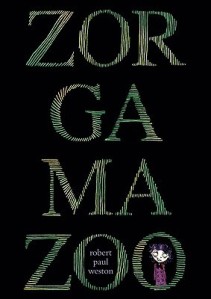 Robert Paul Weston, an alumnus of the University of British Columbia where he did his MFA, has written four novels for children, the most recent of which is slated for a November release this year. He writes for both adolescents and middle graders and his novels have won many awards. His books are available at all good bookstores. After living in Canada for a long while, he has moved back to his country of origin, England. You can find him here.
Robert Paul Weston, an alumnus of the University of British Columbia where he did his MFA, has written four novels for children, the most recent of which is slated for a November release this year. He writes for both adolescents and middle graders and his novels have won many awards. His books are available at all good bookstores. After living in Canada for a long while, he has moved back to his country of origin, England. You can find him here.
Dust City draws from several canonical fairytales and casts fairytale characters in memorably different roles. I believe Snow White was a hard hitting detective in the novel. What was the inspiration for the novel? Is there any specific thing or event that led to its genesis?
The inspiration for Dust City came by way of a doctor’s waiting room. On one of the tables, a student (I assume) had abandoned a book by the Harvard folklorist Maria Tatar. The book was filled with historical details of the time in which the Grimm Brothers collected their stories. Reading it, I became interested in the link between history and legend. I wondered what would happen if the two weren’t merely related, but one and the same. If medieval Europe was full of goblins and talking wolves, what would New York or London be like today? Dust City is one possible answer.
What elements or tropes of fairytales did you subvert in Dust City? Was it a conscious decision or was it a natural side effect of giving fresh life to old characters?
I can’t say I had the intention of subverting fairy tales. I think they’re quite subversive already. You might say that making Snow White a police detective subverts her portrayal as a Disney princess, but for me it was a natural progression from the violence of the originals. All of that said, I did include certain ambiguities which subvert the happily-ever-after endings tacked onto so many fairy tales. I’ll stop there, before I slip into spoiler territory.
Dust City is very much a fairytale for contemporary society. Do you believe that the traditional folk and fairytales are losing their relevance to modern people and that over time fairytales that better fit and represent contemporary society will emerge and push the traditional tales into the background?
That all depends on how broadly you define fairy tales. If they’re just stories, then no, they’ll never die, because people have an insatiable appetite for stories. But if you mean didactic, fantasy parables from five-hundred years ago, then yes, they’ll probably fade. It’s not hard to imagine a future in which people refer to fairy tales in their day-to-day lives about as often as I refer to cave paintings. We’ll probably live on Mars by then and, yes, something will be lost without them, but I’m sure we’ll find something else to fill the vacancy. I’m sure we’ll still be telling stories.
Perry Nodelman, a children’s literature theorist, talks about the lack of theory and literature concerning masculinity and men. Considering contemporary YA trends especially, do you believe that boys and masculinity are absent or perhaps being misrepresented in YA literature?
I’m not familiar with Dr. Nodelman’s work, so I can’t answer this question with reference to his theories, but as for the portrayal of men and boys in young adult literature, no, I don’t think they are misrepresented. Underrepresented in the recent YA boom? Possibly. But I imagine that’s a market constraint, the fact that young readers are more likely to be female and want to read about themselves. As far as I know, sales bear this out. Ultimately, my job isn’t to balance representations of masculinity or femininity. My job is to write a good book (which is not to say I succeed, but I try).
What is your favourite part about writing children’s literature?
The freedom to explore. A friend of mine defines a writer as someone who is “interested in everything,” but when you write for adults, I have the impression there’s less room to weave between genres. The moment you put out a science fiction novel, it’s all too easy to get stuck. Children’s literature strikes me as a bit more fluid. For instance, the leap from my middle grade debut, Zorgamazoo, to a hardboiled fairy tale like Dust City was a big one. I’m doing it again this year with the first of The Creature Department series, starting in November, followed by Blues For Zoey, a coming-of-age mystery to be published in the spring. That’s what makes writing for youth so enjoyable. I can take my friend’s definition of what it means to be a writer and put it into practice.





Pingback: Top Ten Tuesday: Books I Hope I Have Time to Read in the Fall | Bibliophilic Monologues·